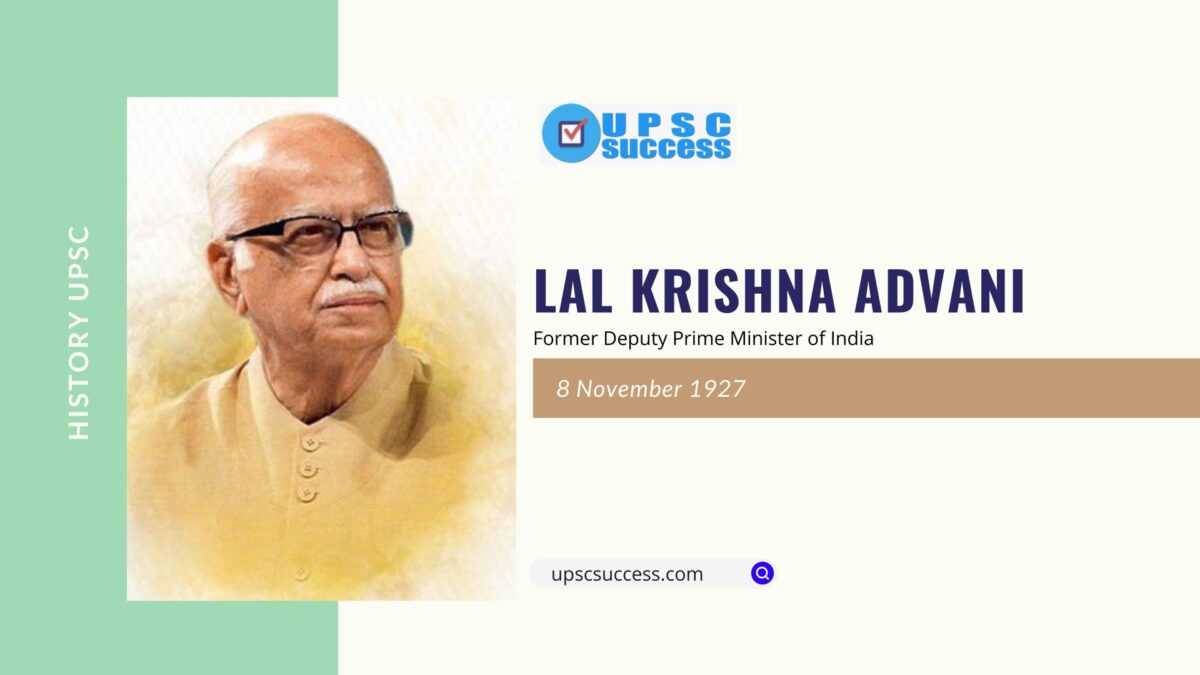Lal Krishna Advani, a veteran leader of Indian politics and a key figure in the Bharatiya Janata Party (BJP), was awarded the prestigious Bharat Ratna in 2024, recognizing his significant contributions to the nation.
Early Life and Political Entry
- Born in 1927 in Karachi (now Pakistan).
- Actively involved in the Rashtriya Swayamsevak Sangh (RSS) since his youth.
- Joined the Bharatiya Jana Sangh (BJS) in 1951, the precursor to the BJP.
- Elected to Lok Sabha in 1967, marking his parliamentary debut.
Political Rise and Key Roles:
- Served as President of the BJP from 1986 to 1990 and 1993 to 1998.
- Played a crucial role in building the BJP as a national force, leading the party’s Rath Yatra in 1990.
- Deputy Prime Minister in the Atal Bihari Vajpayee-led NDA government from 1998 to 2004, handling key portfolios like Home Affairs and Information & Broadcasting.
- Led the opposition in the Lok Sabha from 2004 to 2009.
Significant Contributions:
- Instrumental in shaping the BJP’s ideology and strategy, advocating for Hindutva and nationalism.
- Oversaw key initiatives like the National Highway Development Project and Kargil War victory during his tenure as Deputy Prime Minister.
- Recognized for his oratorical skills and strategic leadership within the BJP.
Controversies and Criticisms:
- Associated with the Ayodhya Ram Janmabhoomi movement, which remains a contentious issue.
- Criticized for his role in the demolition of the Babri Masjid in 1992.
- Accused of promoting communal politics and divisive rhetoric.
Legacy and Significance for UPSC Aspirants:
- Advani’s political journey offers insights into the evolution of the BJP and its rise to power.
- Understanding his contributions and controversies is crucial for analyzing Indian politics and social dynamics.
- His life can be studied as a case study in leadership, ideology, and the complexities of Indian democracy.

